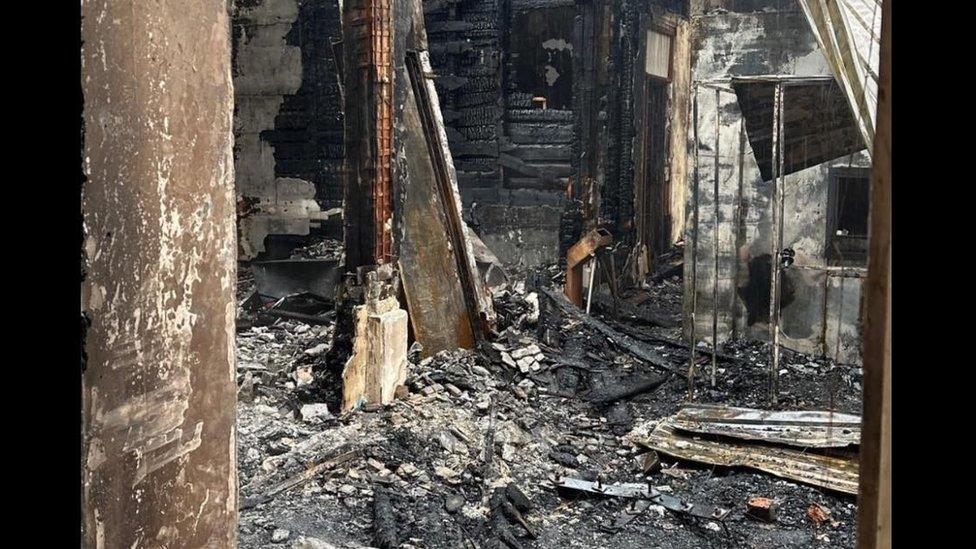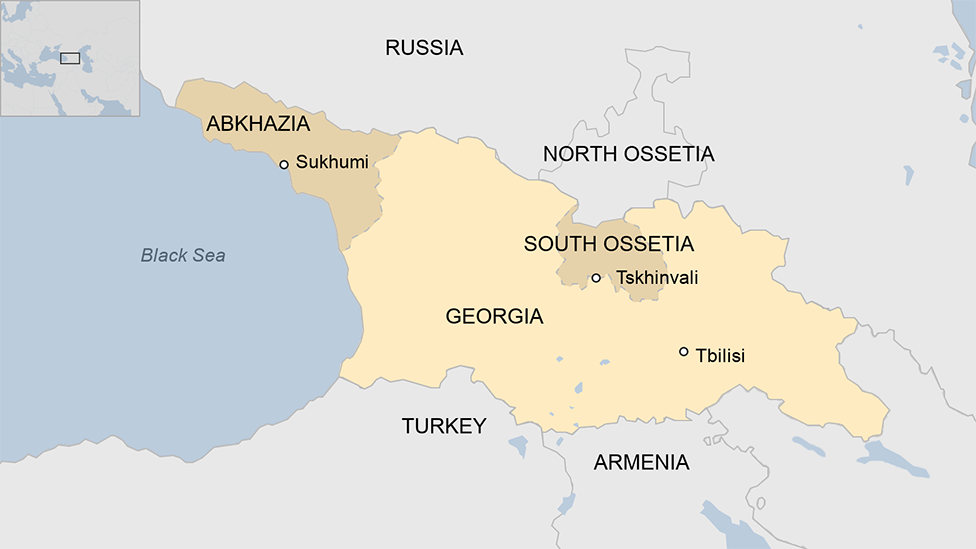Fire destroys almost entire Abkhazia art collection of 4,000 works
- Published

The gallery was home to an entire collection of Abkhazian art
A fire has destroyed almost the entire art collection of Abkhazia, the breakaway region of Georgia that is controlled by Russia.
More than 4,000 paintings at the National Art Gallery in the capital Sukhumi were lost in the blaze.
It spread quickly inside the early 20th Century building which had a wooden structure and was home to an entire collection of Abkhazian art.
Investigators say an electrical short circuit may have started the fire.
A video on social media showed intense flames inside the gallery.
Among the destroyed artworks were 300 pieces by the renowned artist and stage designer Alexander Chachba-Shervashidze.
The director of the national gallery, Suram Sakanya, said the collection had survived Abkhazia's civil war with Georgia in the 1990s and was an irreparable loss for Abkhaz culture.
"We have been gathering this collection since 1963 and it went up in flames in seconds. Such a tragedy for us here in Abkhazia," the director said.
Local artists had long been demanding a more suitable location to store the unique art collection. A video taken before the fire showed paintings stacked together in two cramped rooms without adequate protection.
Abkhazia, which gets military and financial support from Moscow, lies in the north-western corner of Georgia and borders Russia.
The region fought a war of secession with Georgia from 1992-93 and declared independence in 1999, but has little international recognition.
Since the Georgian-Russian war of 2008, Moscow has recognised it as an independent state. Georgia says Abkhazia is occupied by Russia.
Georgian President Salome Zourabichvili said the fire was "a tragedy for us all".
"I deplore what is a direct consequence of the neglect of cultural identity both by the de facto leadership and the Russian occupants," she posted on X, formerly Twitter.
Russia has promised to send specialists to Sukhumi to help restore the surviving 150 paintings rescued from the fire.
- Published19 November 2024
